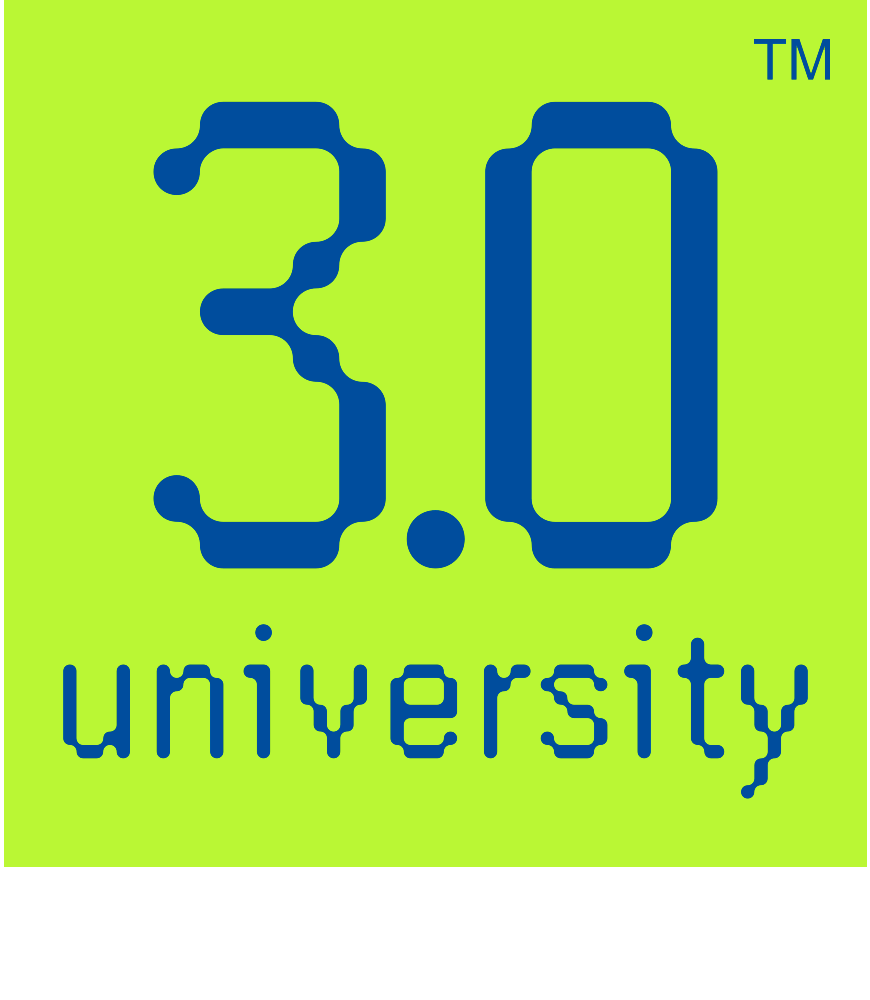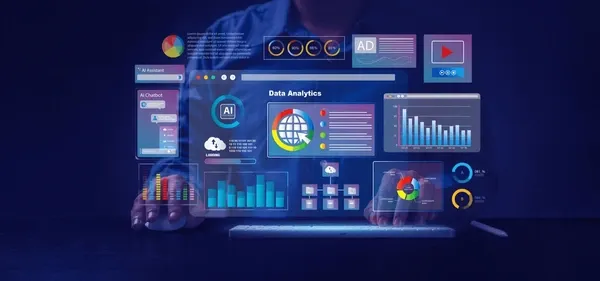
How 3.0 University Prepares You for Future Jobs?
- Posted by 3.0 University
- Categories Emerging Technology
- Date April 11, 2025
- Comments 0 comment
The Future of Work is Now.
Technology’s rapid progress—coupled with an almost unyielding digital shakeup—reshapes our work landscape in ways that grab your attention.
Traditional schooling, built mainly around textbook theory, just doesn’t cut it when it comes to readying students for an increasingly tangled job market.
Institutions such as 3.0 University often fill this gap by emphasizing practical knowledge and adaptability, which are considered essential for future success.
Their courses mix topics—everything from artificial intelligence to blockchain—with real-world, hands-on experiences like micro-certifications and live case studies.
This approach, in a way, nurtures a mindset of lifelong learning, letting students grow side by side with fresh tech breakthroughs. Thus, is tends to be as essential to dive into this piece to discover the Future jobs in demand in 2025
Overview of the evolving job landscape and the need for adaptability and practical skills.
The job scene is flipping in ways we didn’t really expect. Advances in technology and shifting market needs mean that it isn’t enough to just know your theory—the emphasis on real, practical skills is stronger than ever.
Generational patterns and systems of education mutate in a matter of decades. We need to know if there’s high demand jobs in the next 10 years for aspirants.
What’s interesting to know that most of us, today, are induced to blend classroom concepts with prevalent and day-to-day knowledge, attaining versatile abilities that enable them to adapt to rapid changes.
And yes, it is as much evident in the rise of fields such as cybersecurity, artificial intelligence, and blockchain, where it is key to blend traditional theory with practical technical knowledge.
In most cases, schools should be leaning into opportunities like internships or project work that mimic the real-world challenges graduates will face—experiences that offer a taste of the unpredictable landscape ahead.
At 3.0 University, for instance, creating a learning methodology where theory meets on-the-ground practice sets students up not just to land a job but to eventually lead in environments that are constantly evolving.
This avant-garde or progressive thinking tendency, despite its occasional imperfections, significantly aids graduates in adapting to a workforce where change is the only constant.
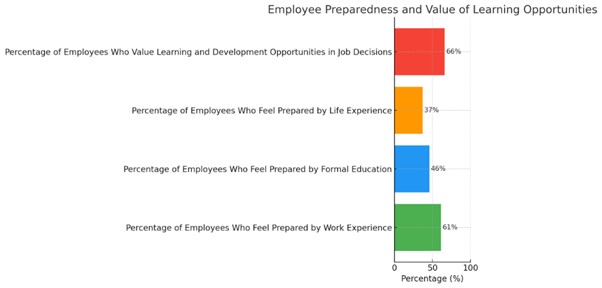
The bar chart above reveals the percentages of employees who feel prepared for their roles based on different factors, including work experience, formal education, and life experience, as well as the value they place on learning and development opportunities in job decisions.
Moreover, it emphasizes on the noteworthy impact of work experience and the importance of continuous learning in today’s job market.
Mastering Emerging Technologies
Work is shifting fast these days as emerging tech reshapes our jobs, pushing colleges to rethink how they teach.
3.0 University, for example, leans into practical, hands-on experiences that many say truly prep students for our digital economy. To land best paid jobs in future, mastering technologies becomes imperative.
As alternative to sticking strictly to textbooks, there’s an ideal and consummate blend of micro-certifications, bootcamps, and internships with several reputed industry partners—creating surprising repositories where theory bumps up against real-life challenges.
This applied methodology not only enhances technical knowledge but also fosters soft skills such as teamwork and problem-solving, which are crucial for future careers.
Overall, experts remark that new tech is gradually but steadily remodelling higher education, advocating schools to help students learn how to navigate and even exploit these advances.
A striking visual dubbed the Metaverse Classroom Layers further shows the varied, sometimes layered, way 3.0 University weaves technology into its curriculum, ultimately setting up graduates to thrive in the unpredictable jobs of tomorrow.
Industry | Projected Employment Growth (2023–2033) | New Jobs Added (2023–2033) |
Professional, Scientific, and Technical Services | 10.5% | 1.1 million |
Computer Systems Design and Related Services | 19.5% | 487,600 |
Data Scientists | 41.9% | Not specified |
Software Developers | 17.9% | 163,500 |
Computer and Mathematical Occupations | 12.9% | Not specified |
Artificial Intelligence (AI) | 257% | 10–13% |
Emerging Technologies Job Market Data (2023–2033)
Let’s see how 3.0 University emphasizes cutting-edge fields like AI, cybersecurity, and blockchain.
3.0 University grabs attention in today’s ever-shifting job scene by diving right into fields like artificial intelligence, cybersecurity, and blockchain tech.
These areas aren’t just abstract ideas—they’re hands-on game changers that tweak how businesses work and reshape career paths.
The school mixes practical labs with real-world internships alongside major industry players, so students get to see theory come alive in unexpected ways.
This approach means grads leave not only knowing the basics but, often, ready to wrestle with the tricky details of the latest tech.
The curriculum also gives a nod to the need to stay adaptable and learn continuously—a subtle reminder that technology changes fast and so should our skills.
Employers clearly seek individuals who consistently update their knowledge, and this emphasis on practical, up-to-date education aligns well with their needs.
All in all, 3.0 University’s genuine commitment to blending solid theory with engaging practice helps its students step into tomorrow’s work world feeling more than ready—even if they sometimes stumble over a comma or two along the way.
Practical, Real-World Learning
Nowadays, blending classroom lessons with real-world experience is more urgent than ever.
3.0 University teams up with industry leaders to create courses that feel fresh and reflect real-world conditions, giving students a true taste of market life.
Instead, they fuse in real challenges with things like internships, micro-certifications, and hands-on case studies; this way, learners get to try out theory in a practical setting.
In several occurrences, this blend not only streamlines the comprehension of intricate concepts but also provides students with a competitive advantage when entering the workforce.
Occasionally, guest talks from industry experts pop in, offering insights into emerging trends and directly influencing career paths.
Ultimately, by fusing hands-on work with solid theory, graduates end up not merely as job seekers but as creative, innovative contributors to their fields.
All in all, this approach paints a vivid picture of how modern virtual learning environments can really make a difference in today’s fast-paced educational scene.
The university’s approach to hands-on learning through micro-certifications and internships is under discussion.
In today’s competitive job market, where traditional classroom methods often fall short, 3.0 University adopts a unique approach.
It takes an unconventional route. It mixes things up by offering micro-certifications, internships, and real-world case studies in a way that speaks directly to what modern industries demand—tangible skills you can actually use.
Instead of letting students sit back and only absorb theory, the school dives into hands-on experiences with current technologies and real business situations, letting them learn by doing.
For example, internships with industry partners give students a chance to figure out workplace dynamics firsthand—yes, they literally step into the mix of the real world.
There’s also a big emphasis on digging into case studies that repeatedly challenge their problem-solving and critical thinking in fresh, unexpected ways.
All told, this kind of multifaceted approach makes graduates more employable and shapes them into flexible, forward-thinking professionals, generally ready for whatever the future might throw their way.
3.0 The university’s commitment to this practical, get-your-hands-dirty learning is, in most cases, the cornerstone of its mission to prepare students comprehensively for the careers ahead.
Conclusion: Future-Ready with 3.0 University Online Courses
Today’s workforce must adapt to the rapid changes in technology, as traditional methods are no longer effective. 3.0 University serves not only as a classroom, but also as a platform for launching your career in the rapidly evolving digital economy.
Their program mixes rigorous technical know-how with the kind of softer skills—communication, critical thinking, and team collaboration—that, in most cases, help shape a flexible mindset.
This approach doesn’t just prep graduates for today’s job scene; it quietly sets them up to take on and even drive future innovations.
Undoubtedly, there’s a plethora of high scope jobs in future, in terms of education and job opportunities.
You can see this mix at work in spaces like the Metaverse Classroom Layers, where real-world experiences and collaborative settings come together in unexpected ways.
All in all, the school’s steady focus on both hard skills and those human touches firmly cements its role in moulding leaders ready to steer change in an ever-shifting landscape.
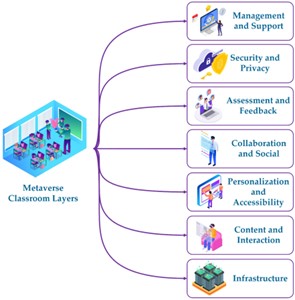
Image2. Overview of Metaverse Classroom Layers and Their Components
Summary of how 3.0 University equips students with the skills and mindset necessary for success in the digital economy.
The rapid shifts in today’s job scene mean that being flexible and forming real bonds is key to thriving in our digital world.
3.0 University has carved out its own niche by leaning hard on mentorship and networking, giving students an unexpected window into both seasoned industry experts and engaged alumni.
They create a kind of vibrant space where professional growth and peer learning mix together—in planned career talks and even casual fireside chats, students get a glimpse of what’s really happening in the field.
In most cases, having a mentor provides the down-to-earth insights from experience, while these events also lay out what the current market expects.
On top of that, the university’s connections with startup and innovation circles bring about networking moments that not only clear the path to new job opportunities but also spice up a lifelong culture of learning and creative thinking.
By tapping into these resources, students build up not just the technical know-how for their chosen fields but also the people skills that really set them up to excel in their careers, perfectly capturing the essence of a workforce ready for tomorrow’s challenges.
You may also like

Zero Trust Architecture: The Future of Enterprise Security
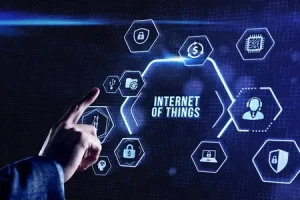
How to Build a Career in IoT?

